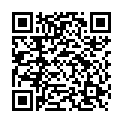|
|
|
| Module code: PIB-IPRE |
|
|
3PA+1S (4 hours per week) |
|
4 |
| Semester: 4 |
| Mandatory course: no |
Language of instruction:
English |
Assessment:
Written composition with presentation
[updated 19.02.2018]
|
BMT553 (P222-0118) Biomedical Engineering, Bachelor, ASPO 01.10.2011
, optional course, non-technical
KI606 (P200-0014) Computer Science and Communication Systems, Bachelor, ASPO 01.10.2014
, semester 4, optional course, non-technical
KIB-IPRE (P222-0118) Computer Science and Communication Systems, Bachelor, ASPO 01.10.2021
, semester 4, optional course, non-technical
KIB-IPRE (P222-0118) Computer Science and Communication Systems, Bachelor, ASPO 01.10.2022
, semester 4, optional course, non-technical
MAB.4.2.1.29 (P222-0118) Mechanical and Process Engineering, Bachelor, ASPO 01.10.2013
, semester 3, optional course, general subject
MST.IPE (P222-0118) Mechatronics and Sensor Technology, Bachelor, ASPO 01.10.2012
, semester 4, optional course, non-technical
MST.IPE (P222-0118) Mechatronics and Sensor Technology, Bachelor, ASPO 01.10.2019
, semester 4, optional course, non-technical
MST.IPE (P222-0118) Mechatronics and Sensor Technology, Bachelor, ASPO 01.10.2020
, semester 4, optional course, non-technical
PIBWN68 Applied Informatics, Bachelor, ASPO 01.10.2011
, semester 4, optional course, not informatics specific
PIB-IPRE (P222-0118) Applied Informatics, Bachelor, ASPO 01.10.2022
, semester 4, optional course, not informatics specific
PIB-IPRE (P222-0118) Applied Informatics, Bachelor, SO 01.10.2026
, semester 4, optional course, not informatics specific
Suitable for exchange students (learning agreement)
|
60 class hours (= 45 clock hours) over a 15-week period.
The total student study time is 120 hours (equivalent to 4 ECTS credits).
There are therefore 75 hours available for class preparation and follow-up work and exam preparation.
|
Recommended prerequisites (modules):
None.
|
Recommended as prerequisite for:
|
Module coordinator:
Prof. Dr. Martin Löffler-Mang |
Lecturer: Prof. Dr. Martin Löffler-Mang
[updated 10.11.2016]
|
Learning outcomes:
After successfully completing this module, students will be able to analyze and evaluate global challenges. They will have acquired new working techniques that will help them develop innovative and technical visions for the future. They will be familiar with the most important basic concepts of conscious communication and discussions in interdisciplinary work. They can present and document work results in an appropriate manner. In addition, students will have expanded their intercultural and foreign language skills through work in international teams.
[updated 19.02.2018]
|
Module content:
Students will discuss the challenges of today´s world and develop technical visions for what they believe life on earth will be like in 10 to 50 years. In international project groups, they will develop and discuss their own technical visions from fields such as bionics, mechatronics, nanotechnology, intelligent materials, renewable energies, optical technologies and information technologies (selection) for a sustainable life on earth.
[updated 24.02.2018]
|
Teaching methods/Media:
The initial phase will focus on inspiring, future-oriented lectures by our speakers on technical topics of the future. The goal of these lectures is to motivate the students and inspire their conceptual work. The lectures will be accompanied by workshops on creative techniques (brainstorming, mind mapping, World Café etc.) and team building.
During the main phase, students will work autonomously in groups supported by mentors (lecturers from our partner universities). At the end of each day, together with the lecturers, he students will reflect on their own results, as well as those from the other groups.
The intensive program will end with a presentation and self-assessment of each group´s results in the form of a marketplace.
[updated 24.02.2018]
|
Recommended or required reading:
Project-related literature
[updated 19.02.2018]
|
Module offered in:
SS 2025,
SS 2024,
SS 2023,
SS 2022,
SS 2021,
...
|


